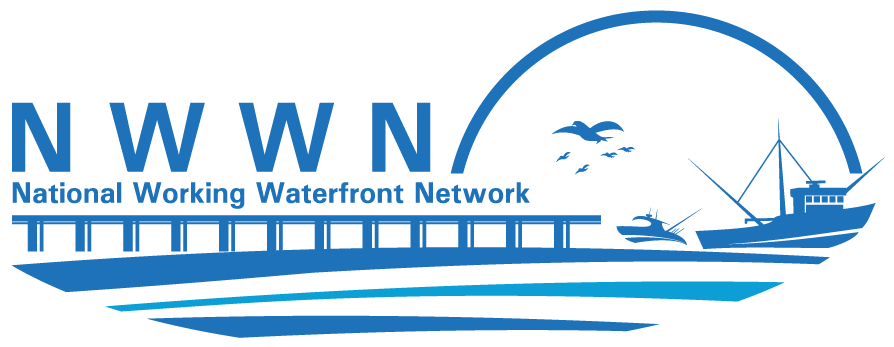The Sustainable Working Waterfronts Toolkit is a web-based information portal that contains a wealth of information about the historical and current use of waterfront space, the economic value of working waterfronts, and legal, policy, and financing tools that can be used to preserve, enhance, and protect these valuable areas. The Toolkit also features case studies of successful working waterfronts initiatives from communities around the country. Sharing this information with stakeholders – including waterfront businesses and industry, waterfront landowners, users and residents, and planners and governments – is an essential first step toward increasing knowledge, awareness, and implementation of the range of tools and options are available.
The Final Report for the Sustainable Working Waterfronts Toolkit project was published in March 2013. Please use the links below to access an executive summary and the full report which provide a comprehensive overview of the Toolkit and contain the project team’s key findings and recommendations related to working waterfront preservation.
Executive Summary
Full Report
Appendices:
- History, Status, and Trends of Working Waterfronts
- Economic Analysis of Working Waterfronts in the United States
- Financing Tools for Working Waterfronts
- Working Waterfront and the CZMA: Defining Water-dependent Use
- Engaging the Legal Community in Working Waterfronts
- State Funding for Ports: Selected State Summaries and Links to Resources
- The Tiff Over TIF: Extending Tax Increment Financing to Municipal Maritime Infrastructure
- Best Practices for Working Waterfront Preservation: Lessons Learned from the Field
- Case Studies
Toolkit Contents:
- A historic overview of trends and drivers of change in working waterfronts and water-dependent industries over time and today;
- An economic analysis of the U.S. ocean economy;
- A database of financing tools and descriptions of law and policy tools to increase the capacity of communities to preserve working waterfronts;
- Guidance for implementation including case studies and related resources.
Struggling with where to start?
Users can access information in the Toolkit from multiple perspectives, including the three primary stakeholder groups:
Acknowledgements
The Sustainable Working Waterfronts Toolkit was developed by a subcommittee of the National Working Waterfronts Network with the generous financial support of the Economic Development Administration of the U.S. Department of Commerce. The Project Team involved staff from seven partner institutions: Coastal Enterprises, Inc., Florida Sea Grant, Island Institute, Maine Sea Grant, the National Sea Grant Law Center at the University of Mississippi School of Law, the Urban Harbors Institute at the University of Massachusetts Boston, and Virginia Sea Grant. The Island Institute, Maine Sea Grant, and the National Sea Grant Law Center provided project leadership and coordination.
The Sustainable Working Waterfront Toolkit is a result of research sponsored in part by the U.S. Economic Development Administration under Investment No.: 99-07-13873, with additional support from the Maine Department of Marine Resources, the 1772 Foundation, the Munson Foundation, the University of Florida, the University of Mississippi School of Law, Urban Harbors Institute, and Virginia Institute of Marine Science.
Several collaborators were involved in the project, many volunteering a significant amount of time. They assisted the Project Team by conducting research, writing case studies, and providing valuable feedback. Collaborators included:
- Thomas Ankersen, Director, University of Florida Conservation Clinic, UF Levin College of Law;
- Mark Breederland, Extension Educator, Michigan Sea Grant;
- Elizabeth Durfee, NOAA Coastal Management Fellow, Michigan Department of Environmental Quality;
- Suzanna Stoike, Sea Grant Fellow, Washington Department of Ecology;
- Kenneth Walker, Program Analyst, NOAA/OCRM; and
- The Maine Coastal Program
To guide its work, the Project Team formed an Advisory Committee comprised of working waterfront experts from around the country. Through the duration of the project, the Advisory Committee provided feedback on project priorities and reviewed case studies, website design, preliminary findings, and project reports. Advisory Committee members were:
- Charles Adams, Food and Resource Economics Department, University of Florida;
- David Ashton, Port of Portland (Oregon);
- Michael Dickerson, Craft3, Ilwaco, Washington;
- Dennis Ducsik, Massachusetts Coastal Zone Management Program;
- Julie Harrington, Center for Economic Forecasting and Analysis, Florida State University;
- Lewis Lawrence, Middle Peninsula Planning District Commission (Virginia);
- Gil Sylvia, Oregon State University; and
- Jody Thompson, Auburn University Marine Extension and Research Center,Mississippi-Alabama Sea Grant Consortium.

